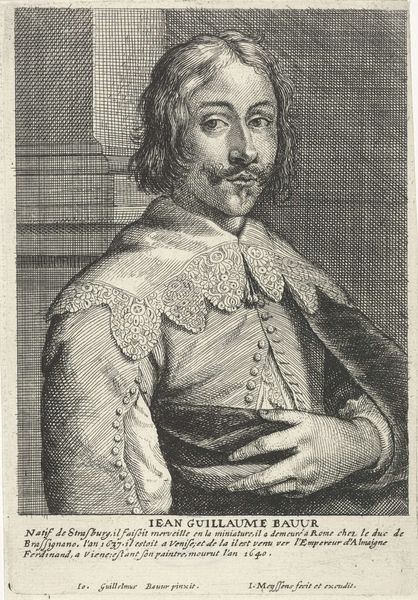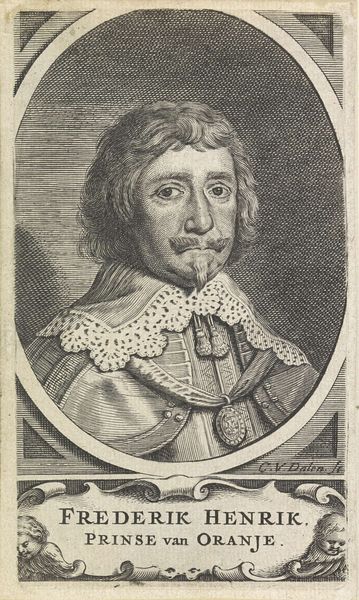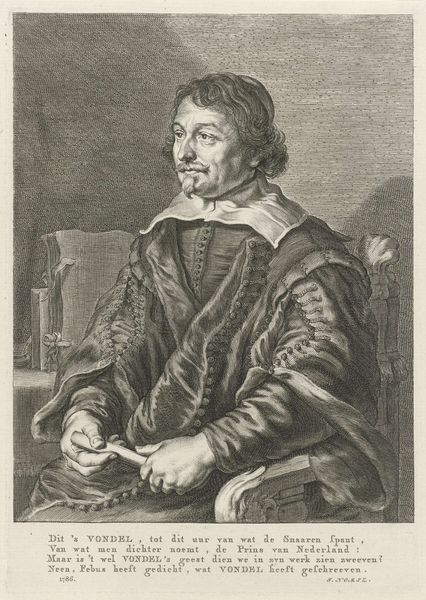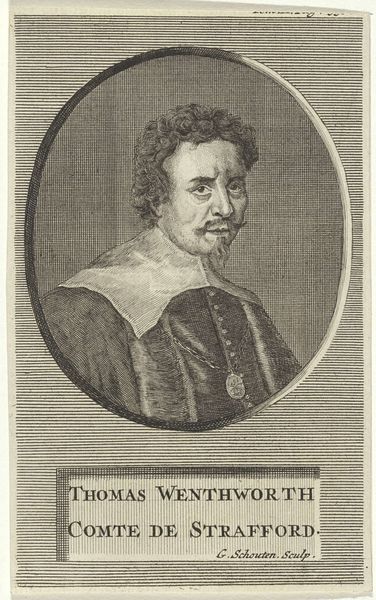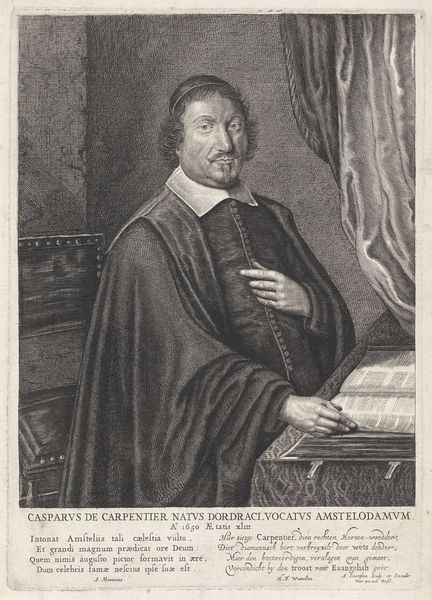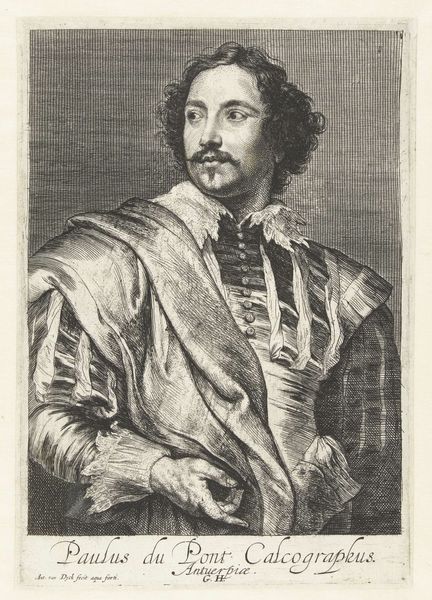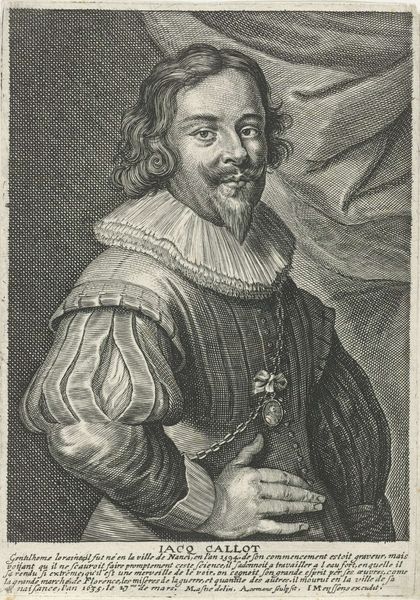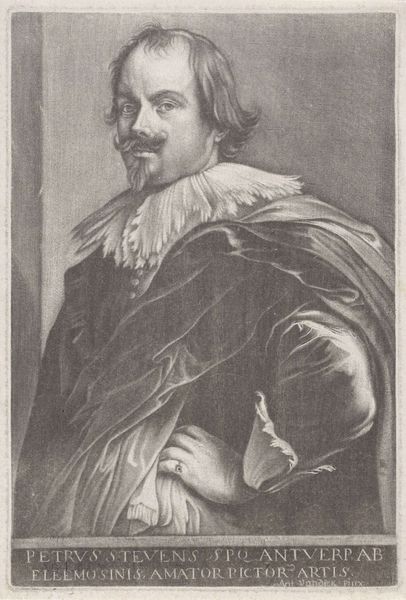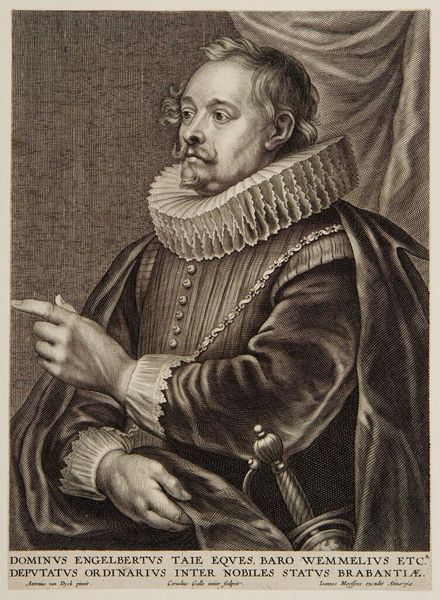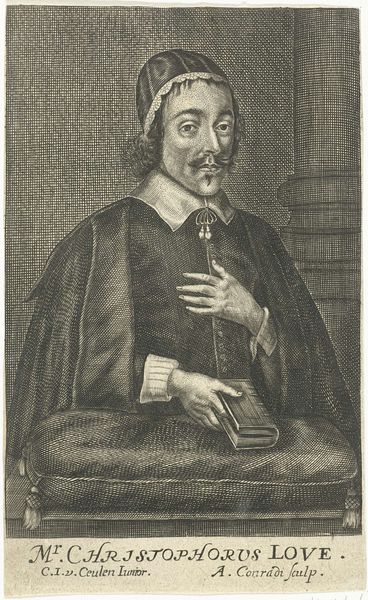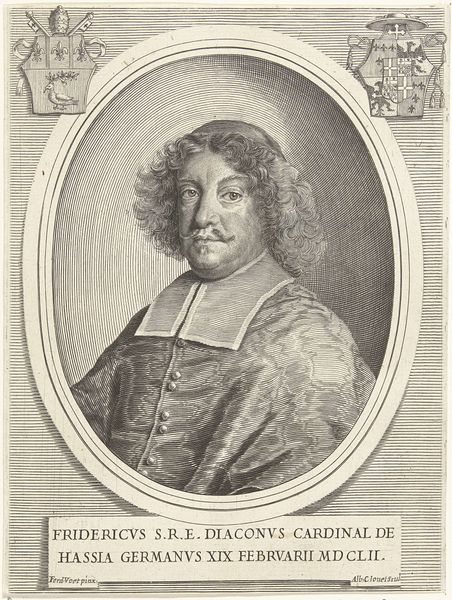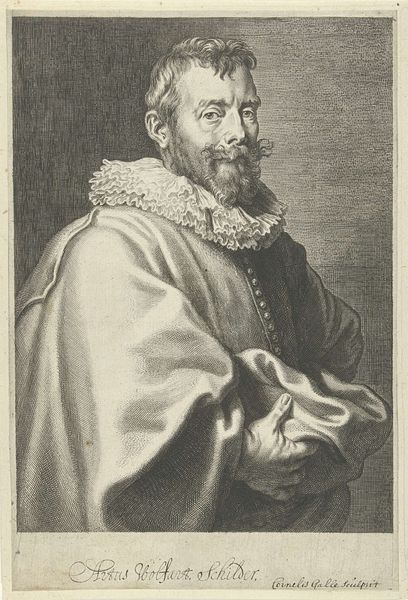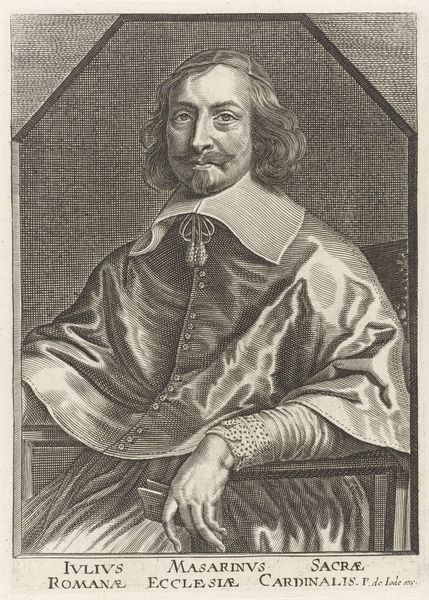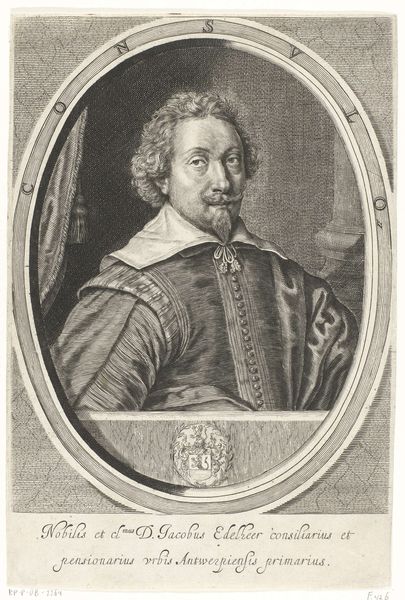
drawing, print, engraving
#
portrait
#
drawing
#
baroque
# print
#
old engraving style
#
portrait drawing
#
engraving
Dimensions: height 162 mm, width 112 mm
Copyright: Rijks Museum: Open Domain
Pieter de Jode II etched this portrait of Paulus Pontius in the 17th century. The hand is a striking feature; its gesture and placement carry echoes through art history. Consider the "hand-in-cloak" motif, which has roots extending back to antiquity. It was notably employed to convey a sense of modesty, discretion, or hidden nobility. Think of the Roman statesman, his toga concealing a part of himself, and how the gesture reappears through the Renaissance, subtly shifting with each portrayal. Here, Pontius presents himself with a similar restraint, yet the exposed hand, adorned with a ring, hints at status and accomplishment. This act of concealing and revealing plays upon the viewer's subconscious, creating a tension between what is shown and what is hidden. The image evokes a complex interplay of power and personality, reflecting not just Pontius as an individual, but also the broader cultural values of his time. The symbol progresses, ever-changing yet eternally linked.
Comments
No comments
Be the first to comment and join the conversation on the ultimate creative platform.
